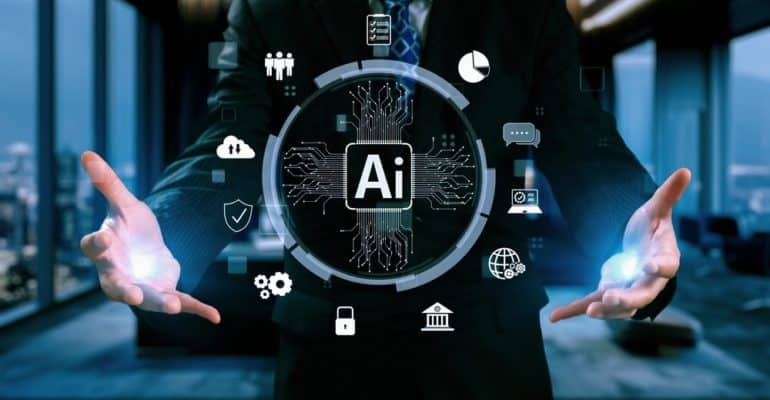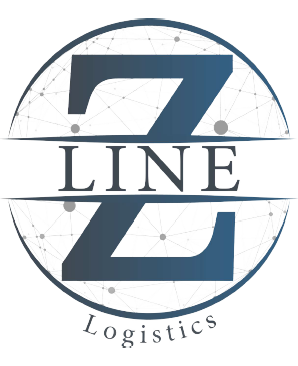Ever feel like you’re wrestling with a hydra when trying to manage your supply chain? How is AI Used in Supply Chain Management?
You solve one problem – a delayed shipment, a sudden spike in demand, a bottleneck in warehousing – only for two more to pop up elsewhere.
In today’s hyper-connected, often volatile global marketplace, managing the intricate web of suppliers, manufacturers, distributors, retailers, and customers feels more complex than ever.
Traditional methods, while reliable to a point, often struggle to keep pace with the sheer volume of data, the speed of change, and the ever-increasing pressure for efficiency, transparency, and resilience.
What if there was a way to not just react faster, but to proactively anticipate challenges, optimize routes you didn’t even know were inefficient, and make smarter decisions across the board?
That’s where Artificial Intelligence (AI) steps onto the stage. AI is rapidly becoming a transformative force within supply chain management, offering powerful tools to untangle complexity, and drive significant improvements in performance and profitability.
This post will delve into the practical ways AI is being implemented right now, exploring how it’s revolutionizing everything from demand forecasting to warehouse automation and risk mitigation.
Table of Contents
What is AI in Supply Chain Management?

At its core, AI in Supply Chain Management refers to the application of Artificial Intelligence technologies to various processes and decision-making tasks within the entire supply chain.
Instead of relying solely on traditional methods, historical data analysis, or human intuition, AI introduces computer systems capable of performing tasks that typically require human intelligence. This includes:
- Learning: Analyzing vast amounts of data (historical sales, weather patterns, economic indicators, sensor data, traffic reports, social media trends, etc.) to identify patterns and learn from them (this is often Machine Learning, or ML, a subset of AI).
- Problem-Solving & Optimization: Finding the best solutions for complex logistical challenges, like optimizing delivery routes with multiple stops and constraints, or determining the ideal inventory levels across different locations.
- Prediction & Forecasting: Making highly accurate predictions about future demand, potential disruptions, transit times, or equipment failures.
- Automation: Automating repetitive or complex tasks, from managing warehouse robots to processing documents or making routine procurement decisions.
- Perception: Using technologies like computer vision to monitor warehouse operations, inspect goods, or guide autonomous vehicles/drones.
The primary goal of using AI in SCM is to create supply chains that are:
- More Efficient: Reducing waste, optimizing resource use (vehicles, warehouse space, labor), and speeding up processes.
- More Resilient: Better able to anticipate, absorb, and recover from disruptions.
- More Transparent: Providing clearer visibility into the movement of goods and potential bottlenecks.
- More Accurate: Improving the precision of forecasts and planning.
- More Cost-Effective: Reducing operational costs through optimization and automation.
- More Customer-Centric: Improving delivery times and reliability.
Learn more on The Power of Global Sourcing in Supply Chain Management
How is AI Used in Supply Chain Management?
AI leverages its ability to analyze vast amounts of data, learn patterns, make predictions, and automate tasks to significantly enhance various aspects of the supply chain. Here are key application areas:

1- Enhanced Demand Forecasting:
AI algorithms (particularly Machine Learning) analyze complex datasets including historical sales, seasonality, weather patterns, economic indicators, social media trends, promotional activity, and even competitor actions.
Benefit: This leads to far more accurate demand predictions compared to traditional methods, helping businesses optimize inventory levels, reduce stockouts and waste, improve production planning, and manage resources better.
For more information: Understanding the 6 Different Types of Supply Chain Management
2- Intelligent Warehouse Operations:
How: AI optimizes warehouse layouts, guides autonomous mobile robots (AMRs) for efficient picking and sorting, uses computer vision for automated quality checks and inventory counting, optimizes task allocation for human workers, and predicts maintenance needs for warehouse equipment.
Benefit: Increases operational speed and accuracy, reduces labor costs for repetitive tasks, improves space utilization, minimizes errors, enhances worker safety, and reduces equipment downtime.
3- Optimized Transportation and Logistics
How: AI analyzes real-time traffic data, weather conditions, fuel costs, delivery windows, and vehicle capacity to determine the most efficient routes (dynamic routing).
It optimizes load consolidation, helps select the best carriers, predicts Estimated Times of Arrival (ETAs) with greater accuracy, and enables predictive maintenance for delivery fleets.
Benefit: Reduces fuel consumption and transportation costs, improves on-time delivery performance, increases asset utilization, and enhances customer satisfaction through reliable ETAs.
Learn more: What are the 5 Components of a Supply Chain?
4- Predictive Risk Management
AI constantly monitors numerous data streams (news, weather services, financial reports, shipping lane data, geopolitical analyses) to identify potential disruptions like natural disasters, port congestion, supplier instability, or political unrest before they significantly impact the supply chain.
Allows companies to proactively address risks, develop contingency plans, reduce the impact of disruptions, and build more resilient supply chains.
5- Improved Supply Chain Visibility
AI integrates and analyzes data from diverse sources across the supply chain (IoT sensors, GPS, RFID tags, ERP systems, supplier/carrier portals) to provide a comprehensive, real-time view of inventory, shipments, and processes. It can automatically flag anomalies or delays.
Benefit: Offers end-to-end transparency, enables faster identification and resolution of bottlenecks or issues, improves traceability, and enhances collaboration between partners
6- Smarter Procurement and Supplier Management
AI can automate parts of the procurement process (like purchase order generation), analyze supplier performance based on various metrics (on-time delivery, quality, cost), identify potential risks associated with suppliers, and even assist in analyzing contract terms.
Benefit: Streamlines procurement workflows, helps businesses make better supplier choices, identifies potential cost savings, and strengthens supplier relationships through data-driven insights.
7- Enhanced Customer Experience
AI powers intelligent chatbots that can provide customers with real-time updates on their order status. It can also proactively notify customers about potential delays identified through predictive analytics.
Benefit: Improves customer communication and satisfaction, provides instant support, and reduces the burden on human customer service agents.
For more information: The Positive and Negative Impacts of the Amazon Effect on Freight in Dubai
As we’ve explored, the integration of Artificial Intelligence into supply chain management isn’t just a minor upgrade; it represents a fundamental shift in how businesses operate and compete.
From providing incredibly accurate demand forecasts that minimize waste and stockouts, to optimizing delivery routes in real-time based on traffic and weather, automating repetitive tasks in warehouses, and identifying potential risks before they disrupt operations,
AI offers a powerful toolkit for building smarter, faster, and more resilient supply chains. It allows companies to move beyond reactive problem-solving towards proactive optimization, leveraging vast amounts of data to uncover insights and efficiencies previously hidden.
The potential to reduce costs, improve delivery times, enhance customer satisfaction, and gain a significant competitive edge is undeniable.
Embracing AI is no longer a question of if, but how and when. While the technology itself is powerful.
Feeling overwhelmed by the possibilities or unsure where to start your AI journey in logistics?
Ready to transform your supply chain from a complex challenge into a strategic advantage powered by intelligent insights? Don’t navigate this complex landscape alone. Reach out to the experts at Z Line Logistics today for a consultation, and let’s discuss how we can tailor AI-driven solutions to optimize your specific supply chain challenges and unlock new levels of efficiency and success.




